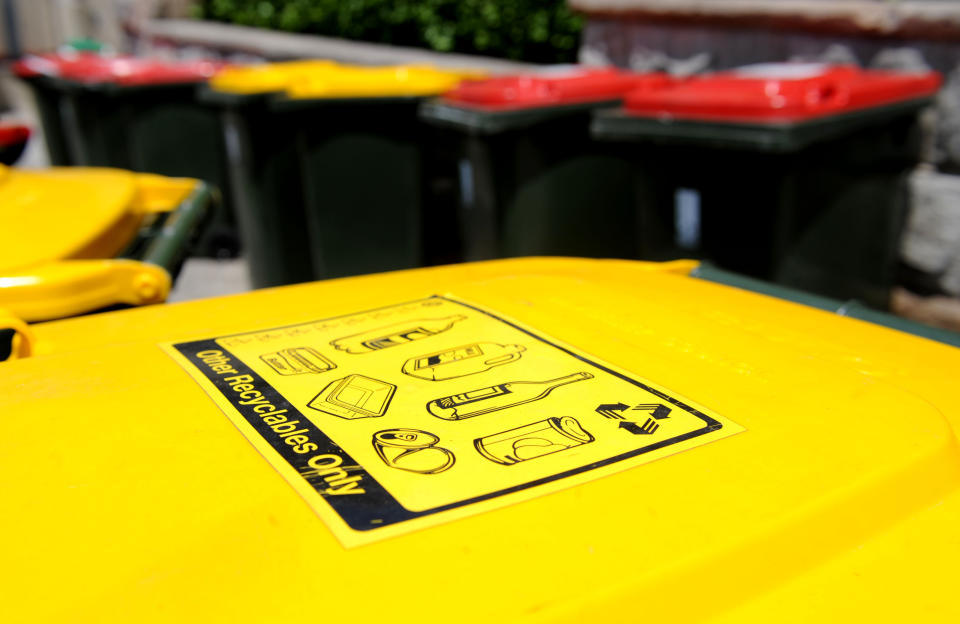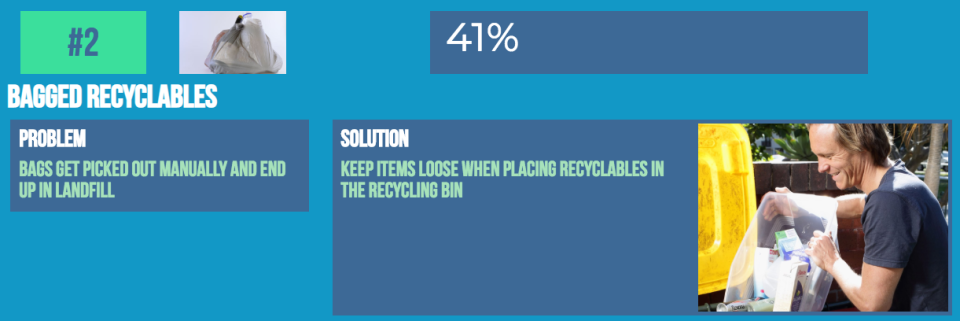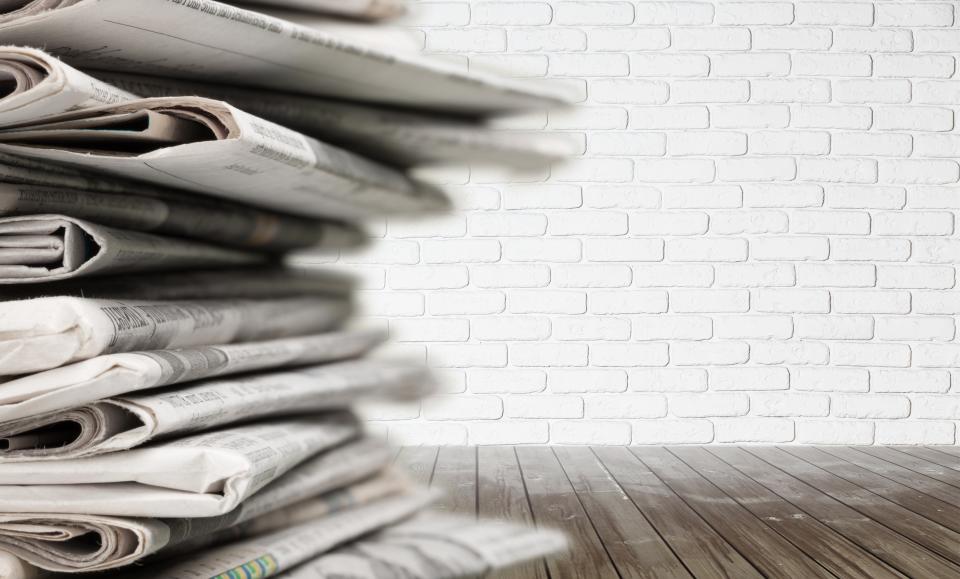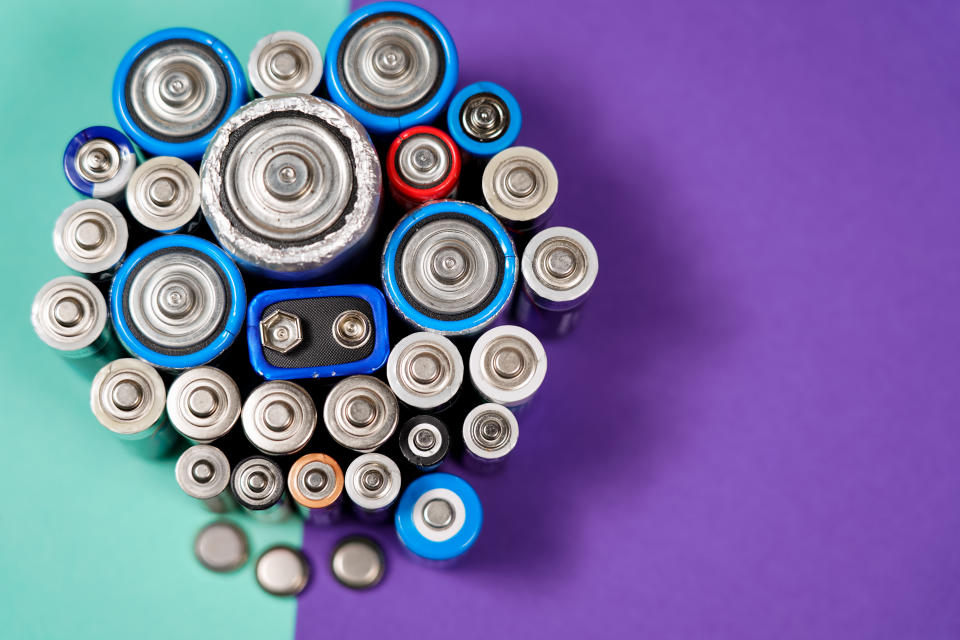The six most common recycling mistakes Australian households make
When it comes to recycling, choosing the correct bin might seem like a no-brainer, but new research shows far too many Aussie households are struggling to understand what goes where.
In the wake of China’s major waste import ‘ban’, Australian households are being urged to improve their recycling techniques – a report from Planet Ark’s Waste War to Recycling Reboot revealed.
The report surveyed 180 councils from around the country, which revealed the six most common mistakes being made by Australian households.
“These mistakes cause problems at sorting facilities and lead to more of Australia’s recyclables going to landfill,” the report emphasised.
Soft plastics in recycling bins

Councils revealed the problem they experienced the most was households disposing of soft plastics, including plastic bags, bread packaging and even the plastic film in tissue boxes into the recycling.
Forty-six per cent of councils said they had found soft plastics in their local recycling bins – contaminating the sorting machines and causing major headaches.
Homeowners are encouraged to drop off the items at the RedCycle bins at all Coles and Woolworths supermarkets.
You can recycle soft plastics like bread bags, biscuit and confectionery packets, frozen food/rice/ pasta bags, plastic bags and even old reusable bags at Coles by dropping them into the REDcycle collection bin at the supermarket.
Bagged recyclables
Forty-one per cent of councils said they regularly faced the problem of people placing their recyclables in plastic bags before disposing of them.
Earlier this year City of Sydney Council’s waste strategy manager Kath McLaughlin told Yahoo7 News that the biggest mistake homeowners make is placing all their recyclables in a plastic bag before putting it in the yellow bin.

“When it comes to what you can recycle, plastics, glass or metal containers that are designed to be of single use can usually be recycled, you just have to make sure it is relatively dry and empty as a general rule,” she said.
“Where it does get confusing is that people separate all their waste and recycling, clean it, then place it in a great big plastic bag, tie it up and put it in the recycling.”
She said there is a manual sorter but they will not touch the plastic bag if they can’t see what is in there, so all the recyclable items would just end up in landfill.
Food/organic scraps

More than 22 per cent of councils said they found food scraps and organics being placed in the recycling bin, lowering the quality of the paper in the mixed systems.
Homeowners are encouraged to follow their local council’s instructions regarding food/garden organic collections.
Non-recyclable plastics
Sixteen per cent of councils said they regularly found non-recyclable plastics like plastic bags in recycling bins.
“Contamination in terms of kerbside recycling occurs when non-recyclable items such as plastic bags are put in the recycling bin. It can clog up recycling machines, degrade the value of recycled materials, increase waste going to landfill and increase the cost of recycling,” the report stated.
Polystyrene

Fifteen per cent of the surveyed councils said they had found objects made of polystyrene such as disposable cutlery, smoke detector housings, and CD cases.
It acts like a paper in the sorting process and can cause serious issues for the recycling process.
Clothing
While it might seem like a recyclable item for some, the fabrics also get caught up in the sorting machines – a problem 11 per cent of councils said they had experienced.
When it comes to recycling, choosing the correct bin might often seem like a no-brainer, but there’s every chance you’re doing it wrong.
“While the majority of Australians trust their kerbside recycling does actually get recycled, almost half of us aren’t sure of what happens to it and a significant proportion believe it goes mostly to landfill,” the report states.
Items that CAN be recycled

Newspapers and magazines – Staples are fine to be recycled
Greasy fast food packaging / food scraps – Make a judgement call, if there is a tiny bit of grease on your pizza box or KFC box, it can potentially still be recycled, but not if it is still full of food scraps.
Advertising material – Remove plastic wrap
Phone books – Fine to be recycled
Egg cartons – Remove and discard shells
Envelopes – Even those with clear plastic windows can be recycled
Aluminium and steel tins/cans – Emptied and rinsed
Aerosol cans – Fine to be recycled
Glass bottles and jars – Emptied, rinsed and lids removed
Juice and milk cartons and bottles – Emptied, rinsed and lids removed
Items that CAN’T be recycled

Soft plastics – Items such as plastic bags, bread packaging and even tissue boxes can contaminate process and disturb machinery
Clothes, fabrics, textiles – Can contaminate process and disturb machinery
Nappies – Contaminate recycling process and jam machinery
Batteries – Recycle any rechargeable and non-rechargeable AA, AAA, C, D or 9V battery at an ALDI store near you or find out when the next e-waste day is.
Polystyrene – Items such as meat trays and foam packaging should be placed in the garbage bin
Used tissues – While they may seem recyclable, they can contaminate the process
Light globes, mirrors and window glass – Garbage bin (red lid)
Crockery, drinking glasses and Pyrex – Garbage bin (red lid)

